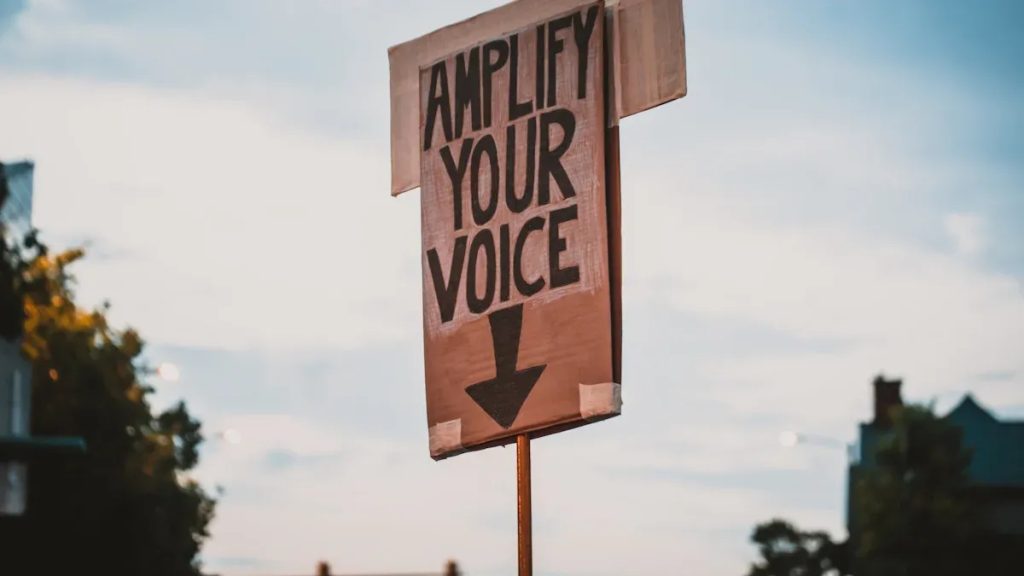You walk into work, ready to share your ideas. But a coworker makes fun of my accent. The hurt from their jokes can last a long time. Many people feel they must change their accent to fit in. I remember the first time someone laughed at how I spoke. I felt small and like I did not belong. You are not alone.
- 46% of workers in the UK have been mocked, criticized, or picked on for their accent.
- 25% of employees have heard jokes about their accent at work.
| Environment | Percentage Feeling Pressure to Change Accent |
|---|---|
| Academic Settings | 75% |
| Creative Industries | 77% |
Your accent is part of your story. You should get respect, not jokes or misunderstanding. You can find your voice again.
My Story
First Experience
You remember your first day at a new job. You feel excited and a little nervous. You want to do your best and show your skills. Then, you speak up in a meeting. You notice a few people glance at each other. You hear someone whisper and laugh. You realize they are talking about your accent. You feel your cheeks get hot. You wonder if you should have stayed quiet. You start to question if you belong.
You try to brush it off. You tell yourself it is not a big deal. But the feeling stays with you. You notice every time you say something, you worry about how you sound. You practice words at home. You hope no one will notice your accent next time. You want to fit in, but you also want to stay true to yourself.
Coworker Makes Fun of My Accent
One day, a coworker makes fun of my accent in front of others. You hear them repeat your words in a silly voice. You see others laugh. You feel embarrassed and hurt. You want to disappear. You wonder why people think it is okay to joke about the way you speak.
One day, I overheard a manager making fun of my accent. He was mocking it, exaggerating the way I speak, and other managers were laughing along with him. I’ll never forget how humiliated and embarrassed I felt. Mocking someone’s accent isn’t just hurtful—it’s a form of discrimination, and it’s not something anyone should tolerate.
You realize you are not alone. Many people have faced moments when a coworker makes fun of my accent. Each time it happens, you feel smaller. You start to hold back your ideas. You worry that every time a coworker makes fun of my accent, others will join in. You begin to doubt your skills, even though you know you are good at your job.
You deserve respect. Your accent is part of your story. When a coworker makes fun of my accent, it says more about them than about you. You can find your voice again. You can stand tall and proud of who you are.
Emotional Impact
Confidence and Self-Esteem
When someone mocks your accent, you may feel a wave of emotions. You might notice frustration or even annoyance when you become the object of fun at work. Sometimes, embarrassment creeps in, especially if you already feel insecure about how you speak. You may sense that others do not respect you or your ideas. This can make you question your value and your place in the team.
You are not alone if you feel your confidence drop after someone laughs at your accent. Many people experience a loss of self-esteem when they face accent mockery. You may start to doubt your skills, even though you know you are capable. Psychological studies show that accent stigma can lower your belief in yourself. You might feel unwelcome or even powerless in new situations. These feelings can lead to anxiety and make it harder to speak up.
You deserve to feel proud of your accent. Your voice matters, and your story is important.
Coping Mechanisms
You can take steps to protect your confidence and rebuild your self-esteem. Here are some ways to cope with the impact of accent mockery:
- Remind yourself that your accent is a part of your identity. It shows your journey and your strength.
- Find supportive coworkers or friends who value your voice.
- Practice positive self-talk. Tell yourself that you belong and that your ideas matter.
- Seek out resources or groups that help people facing accent stigma.
- If you feel overwhelmed, talk to a counselor or mentor who understands your experience.
You have the power to rise above the negativity. Every time you speak, you show courage. Your accent is not a weakness. It is a sign of your unique background and your ability to adapt. Keep speaking up. You inspire others to do the same.
Accent Bias in the Workplace
Accent bias is a problem for many people at work. You might see it in meetings or interviews. It can even show up in simple talks with coworkers. This bias can change how people see your ideas and skills. It can make it harder for you to do your best. If you have felt hurt by jokes or unfair treatment, you are not alone.
You may wonder how often accent bias happens. Studies show it is common in many jobs and affects people in different ways:
- Women with non-standard accents are affected much more than men. For women, the impact is almost five times bigger.
- The bias is strongest when women interview other women.
- Racial and ethnic accents get the most bias. Regional and foreign accents also face bias.
- Audio-only interviews make accent bias worse. Video calls help lower it.
Accent bias does more than hurt your feelings. It can change your job future. Look at the table below to see how it can affect you:
| Long-term Career Effects | Description |
|---|---|
| Hireability | Getting a job is harder with a non-standard accent. |
| Earning Potential | You might get paid less for the same work. |
| Psychological Well-being | You may feel less happy and less sure at work. |
Accent bias can also hurt the workplace. It can make you feel alone or not welcome. It can make people less happy at work. It can even make good workers leave. If companies ignore accent bias, they may lose skilled workers and hurt their name.
Linguistic Discrimination
Linguistic discrimination is when people judge you for how you talk. This bias can happen in many ways at work. You might see it when people hire, give promotions, or assign tasks. Sometimes it is easy to see. Other times, it hides behind rules.
You may notice these signs of linguistic discrimination:
- Some companies have English-only rules. These rules can hurt people who speak other languages or have different accents.
- You might not get picked for projects because of your language skills.
- Laws against discrimination often miss language bias, so it can go unnoticed.
- This bias can happen in person or online, so it is hard to avoid.
- Strict language rules can hurt your culture and identity.
- These rules may be unfair if they harm people from some backgrounds.
- Employers should look at each case, not make one rule for all.
Statutory employment law in the United States does not directly address accent or dialect discrimination, but Title VII’s prohibition on national origin discrimination has been interpreted to include protections against discrimination based on foreign accents.
Title VII of the Civil Rights Act of 1964 protects you from discrimination because of your national origin. This includes language and accent discrimination. Employers cannot judge you for your accent unless it really affects your job.
Glottophobia is another word for accent-based discrimination. It means treating someone badly because of how they talk. Glottophobia can cause unfair treatment and make you feel left out. You may feel like you do not belong, even if you have the right skills.
Overcoming Accent Bias
You can fight accent bias and help make things better. The first step is to notice it and take action. You can protect yourself and help others too.

Here are some ways to challenge accent bias at work:
- Learn about accent bias and how it affects people. Knowing more helps you spot unfair treatment.
- Listen to what people say, not just how they say it. Focus on their ideas and skills.
- Support coworkers with non-standard accents. Encourage them to share their thoughts.
- Speak up when you see or hear accent bias. Stand up for fairness.
- Ask your company to give training and awareness programs. These teach everyone about the value of language diversity.
- Suggest cultural education sessions. These help people learn about different backgrounds and accents.
- Ask your company to make fair communication rules. Make sure everyone gets a chance to speak.
- Give people chances to hear many accents. Team meetings and social events can help everyone get used to different voices.
| Strategy | Description |
|---|---|
| Training and Awareness Programs | Teach everyone about diversity and how to spot bias. |
| Cultural Education | Help employees learn about different cultures and accents. |
| Highlighting Diversity | Let international employees share their stories and skills. |
| Inclusive Communication Policies | Make sure all voices matter in meetings and projects. |
| Exposure to Different Accents | Give people a chance to hear many accents in social settings. |
You can also use tools like Utell AI. These tools help you speak clearly and with confidence. They can make meetings easier and help you feel better when you talk.
| Feature/Benefit | Description |
|---|---|
| Clarity | Makes it easier for others to understand you. |
| Confidence | Helps you feel sure of yourself when you talk. |
| Professional image | Lets you sound polished in client meetings. |
| Reduced training cost | Gives you support without expensive classes. |
An HR Director once said, “Never apologize for your accent. It is part of who you are.” If someone asks you to repeat yourself, use it as a chance to connect. Slow down if you need to, but never hide who you are.
Accent bias is real, but you can rise above it. You can help make your workplace better for everyone. When you speak up, you help others do the same. Your voice matters. Your story matters. Together, you can end accent bias and celebrate language diversity.
Workplace Culture
Fostering Respect
You help make your workplace better every day. When you respect different accents, people feel safe and important. A good workplace does not let people make fun of accents. It celebrates differences and welcomes all voices. You can learn about microaggressions and how they hurt people. Many companies teach workers about these problems when they start.
| Key Element | Description |
|---|---|
| Education | Teach workers about microaggressions and why they matter. |
| Awareness | Use tools to find hidden biases, like the Harvard Implicit Test. |
| Cultural Sharing | Give workers chances to share their stories and backgrounds. |
You can show respect by joining cultural events and sharing your story. Listening to others helps build trust. Some companies make rules against microaggressions and want people to talk about what is okay. This way, everyone feels included.
- Make sure people can talk across languages.
- Give chances to learn new languages.
- Celebrate cultures with events and activities.
- Teach everyone about different cultures.
Employer Accountability
You should work in a place that takes accent bias seriously. Employers need clear rules and must act if someone mocks an accent. You can ask your company to train people about accent bias and hold meetings about diversity. Top companies fight accent bias like they do with race or gender.
| Recommendation | Description |
|---|---|
| Training on Accent Bias | Teach recruiters and managers to stop accent bias. |
| Promote Awareness | Hold meetings to help people learn about accent discrimination. |
| Inclusive Culture | Build a place that stops and fixes accent mockery. |
You can ask your boss to make fair hiring and promotion rules. This helps stop bias and makes hiring fair for everyone. If you see accent discrimination, speak up or tell someone. Your actions help make the workplace better for all, especially people with different accents.
Tip: When you ask for change, you help others do the same. Your voice helps build a workplace where everyone belongs.
When you work together, you help your company celebrate differences, support everyone, and make sure every accent is respected.
You show strength every time you speak with your accent. Your voice brings value and helps others feel seen. When you embrace your accent, you gain confidence and help build a sense of belonging.
| Benefit | Description |
|---|---|
| Empowerment and self-confidence | Boosts your courage to face challenges. |
| Connection and belonging | Helps you and others feel included. |
To overcome accent bias, you can:
- Learn about accent discrimination.
- Speak up and share your story.
- Support others with different accents.
- Use tools like Utell AI to boost your confidence.
- Ask for fair workplace policies.
Share your accent with pride. You help create a world where every voice matters.
FAQs
What should you do if someone mocks your accent at work?
You can speak up and let them know it hurts. You can talk to your manager or HR. You deserve respect. Your voice matters.
How can you build confidence in your accent?
Practice speaking in safe spaces. Join groups that celebrate language diversity. Remind yourself that your accent shows your journey. You inspire others when you speak.
Can you report accent discrimination to HR?
Yes! You can share your experience with HR. Ask for support and fair treatment. Many companies have rules against discrimination. You help create change.
Will changing your accent help you fit in?
You do not need to change your accent to belong. Your accent is part of who you are. People value your ideas and your story.
What resources can help you overcome accent bias?
- Utell AI for clear communication
- Support groups for language diversity
- Workshops on workplace inclusion
Tip: You can find strength in your story and help others feel proud too! 🌟



